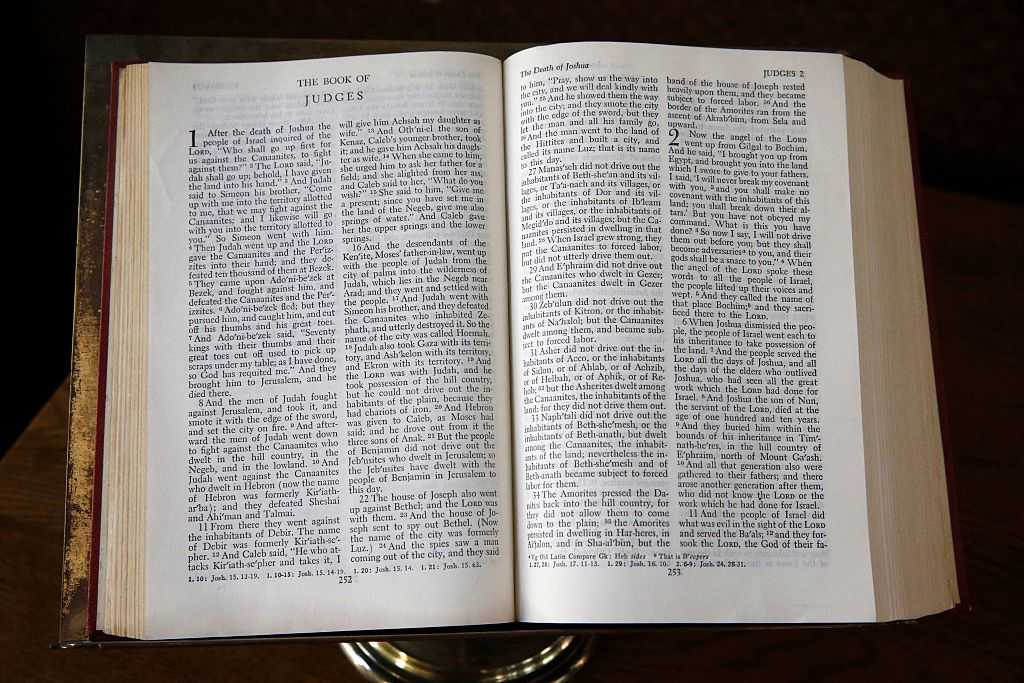An atheist activist group is suing a West Virginia school district in an effort to halt an optional Bible class the district has offered to public school students for the past 77 years.
The Freedom From Religion Foundation filed the lawsuit against Mercer County Schools in Princeton, West Virginia, in U.S. District Court for the Southern District of West Virginia, Bluefield Division, this month on behalf of an unnamed atheist parent and her child, calling the “Bible in the Schools” courses “egregiously unconstitutional.”
“Bible indoctrination classes have been taught in Mercer County Schools for more than 75 years,” reads a press release from the Freedom From Religion Foundation. “Between 1939 and 1985, the bible classes were designed, financed, administered and staffed by a small group of Mercer County citizens.”
The text continues, “Following complaints by parents of eight students in 1985, the Mercer County schools took over the instruction in 1986, claiming to follow nine guidelines from the Office of the Attorney General.”
The atheist group argues that the curriculum — which is reportedly offered starting in first grade and is in 15 elementary schools, three middle schools and one intermediate school — is similar to what one would encounter in Sunday school; the group said the content is geared toward pushing kids to look favorably at the Christian Bible.
According to the complaint, the Bible class has “the effect of advancing and endorsing Christianity over all other religions and religion in general over nonreligion.” The document also said that the mother, referred to as Jane Doe, is essentially forced to “choose between putting her child in a bible study class or subjecting her child to the risk of ostracism by opting out of the program.”
This, according to the lawsuit, violates the First Amendment rights of both Jane Doe and her child, who is referred to as Jamie Doe.
Annie Laurie Gaylor, co-president of the Freedom From Religion Foundation, said in a statement that the Supreme Court ruled in the McCollum v. Board of Education 65 years ago that religious instruction such as this unconstitutional; it was a case that involved a program in the public school system that was described as voluntary, but was found to be unconstitutional. Justia has an explanation:
With the permission of a board of education, granted under its general supervisory powers over the use of public school buildings, religious teachers, employed subject to the approval and supervision of the superintendent of schools by a private religious group including representatives of the Catholic, Protestant and Jewish faiths, gave religious instruction in public school buildings once each week. Pupils whose parents so requested were excused from their secular classes during the periods of religious instruction and were required to attend the religious classes; but other pupils were not released from their public school duties, which were compulsory under state law. A resident and taxpayer of the school district whose child was enrolled in the public schools sued in a state court for a writ of mandamus requiring the board of education to terminate this practice.
It is with this in mind that the Freedom From Religion Foundation is taking action, with Gaylor adding, “It’s unacceptable that such clearly unconstitutional indoctrination is still being conducted in any public schools.”
But the Bible in the Schools website paints a different picture, saying that the courts have ruled the Bible can be taught in schools, so long as the purpose of that instruction isn’t to promote religion and is, instead, for the educational benefit of children.
“The impact of the Bible on the American culture merits for this book far greater attention than is merited by any other book,” the website reads. “To cut our children off from the Bible is to cut them off from their cultural roots. This cannot be said for any other single book.”
It is true that McCollum v. Board of Education allowed for objective Bible instruction, as the majority opinion discussed the issue in detail, with Supreme Court Justice Tom C. Clark writing the following:
It certainly may be said that the Bible is worthy of study for its literary and historic qualities. Nothing we have said here indicates that such study of the Bible or of religion, when presented objectively as part of a secular program of education, may not be effected consistently with the First Amendment. But the exercises here do not fall into those categories. They are religious exercises, required by the States in violation of the command of the First Amendment that the Government maintain strict neutrality, neither aiding nor opposing religion.
It is unclear, of course, how Mercer schools are tackling the curriculum or the issue more broadly, but it’s likely the lawsuit will unveil some of the finer instructional elements.
(H/T: Christian Post)
—
Other Must-Read Stories:
– One of Trump’s First Official Acts as President Cracked Down on Abortion — Here are the Details
– Majority of Clinton Supporters Want Significant Restrictions on Abortion, Poll Finds
– Trump’s Harshest Christian Critics React to His Inauguration
– Is Watching Church Online Really the Same as Going in Person?



